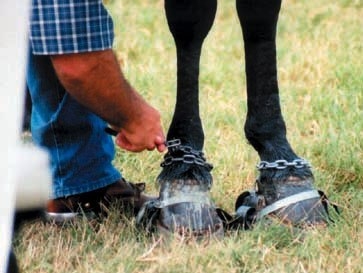 Have you ever stopped to consider how words, though spelled alike, have a different meaning? It’s easy to see how words like post can mean something you write or something you dig a hole for. Or how stalk, can be a part of a plant or it could mean to follow someone. How about the word yard, or jam, or left, or right, or match, or crane…you see the list goes on and on. These words are commonly referred to as homonyms; words that are both spelled and pronounced the same, but have different means.
Have you ever stopped to consider how words, though spelled alike, have a different meaning? It’s easy to see how words like post can mean something you write or something you dig a hole for. Or how stalk, can be a part of a plant or it could mean to follow someone. How about the word yard, or jam, or left, or right, or match, or crane…you see the list goes on and on. These words are commonly referred to as homonyms; words that are both spelled and pronounced the same, but have different means.
Obviously, we find homonyms in some of the songs we sing as well. You might remember singing the word ‘beguile’ in a song or two. This is a word we must know what it means if we’re going to sing it. Notice the second verse of the song, Let the Beauty of Jesus Be Seen:
“When somebody has been so unkind to you, some word spoken that pierces you through and through. Think how He was beguiled, spat upon and reviled, let the beauty of Jesus be seen in you.” The word beguiled means to trick, deceive or cheat. Could it be said that when Jesus was on trial he was cheated? Certainly; taken by night, accused by false witnesses, lied about. We can see how ‘he was beguiled’ but what about another song with the same word, could we possibly be using the same meaning?
“Sing on, ye joyful pilgrims, while here on earth we stay; let songs of home and Jesus beguile each fleeting day…” The word beguile means to trick or deceive or cheat. Would that mean songs about home and Jesus are nothing more than a deception? You know that using that definition would be a misrepresentation of Jesus’ love. Instead, this is where the ‘other’ definition comes in. Beguile can also mean, ‘to pass time pleasantly.’ We sing about our home in heaven and remember our Savior; and those thoughts alone can help us pass the time pleasantly in our life.
But let’s consider another song with a more obscure homonym, The Lily of the Valley…(verse 2) “Oh, He all my griefs  have taken and all my sorrows borne; in temptation He’s my strong and might tower. I have all for Him forsaken and all my idols torn from my heart and now He keeps me by His power. Though all the world forsake me, and Satan tempt me sore, thru Jesus I shall safely reach the goal…” Though you might have noticed more than one homonym, let’s see what Satan is doing to us directly. We sang, “…though Satan tempt me sore…” What kind of sore could that mean? Is it referencing what most would consider ‘causing sorrow or misery?’ Though Satan does cause me sorrow and pain in temptations, perhaps there is another meaning to this ‘sore.’
have taken and all my sorrows borne; in temptation He’s my strong and might tower. I have all for Him forsaken and all my idols torn from my heart and now He keeps me by His power. Though all the world forsake me, and Satan tempt me sore, thru Jesus I shall safely reach the goal…” Though you might have noticed more than one homonym, let’s see what Satan is doing to us directly. We sang, “…though Satan tempt me sore…” What kind of sore could that mean? Is it referencing what most would consider ‘causing sorrow or misery?’ Though Satan does cause me sorrow and pain in temptations, perhaps there is another meaning to this ‘sore.’
Written in 1881, Charles W. Fry was in his mid-forties and only months away from death. As he would have been familiar with a more rustic and rural life style, Fry may have also seen a different meaning to the word sore. Truly he would have known this to be a word depicting pain, but perhaps he also knew this word had another connotation. He may very well have known that sore(d) meant to, ‘mutilate the legs or feet of (a horse) in order to induce a particular gait in the animal.’ With this added definition let’s consider the message of the song; “…though all the world forsake me and Satan tempt me (so as to make me walk the way he wants me to), thru Jesus I shall safely reach the goal…” Satan does ‘tempt me sore’ that’s true. But we should never let him change from our walk with Christ!
And it’s true, we do hurt when we face trials and temptations, but know that Satan wants to do more damage to you other than just ‘making you hurt.’ He is trying to change your gait (a person’s particular manner of walking). His evil desire is to ‘mutilate’ your legs (your heart) so badly that you will eventually change your way of walking. But that’s when we remember the next line of this hymn, “….thru (with) Jesus I shall safely reach the goal.” There are more to our psalms, hymns and spiritual songs than we sometimes realize. Spend time reading, learning and understanding the words you sing as you praise God and edify one another.

